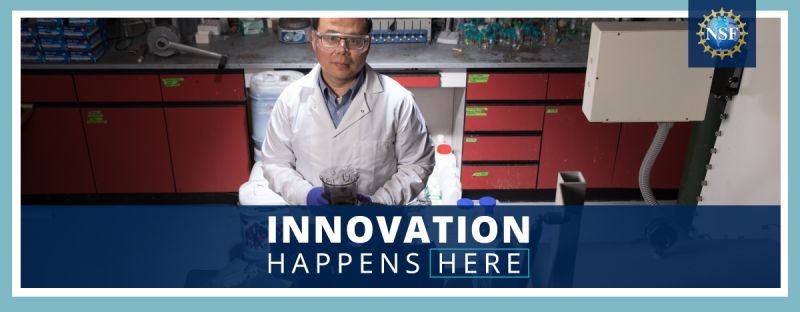Essential Insights
-
Worcester Polytechnic Institute (WPI) is transforming the future of sustainable energy through groundbreaking lithium-ion (Li-ion) battery recycling technology, highlighted by NSF Director Sethuraman Panchanathan as a hub of innovation.
-
WPI’s team, including entrepreneur Eric Gratz and professor Yan Wang, is addressing a major challenge in the lithium supply chain: current mining and recycling methods are inadequate and environmentally harmful, prompting a push for domestic solutions.
-
The NSF-backed research at WPI paved the way for the founding of Ascend Elements, which has developed a highly efficient recycling process that customizes cathode materials while ensuring that batteries made from recycled materials perform as well as new ones.
- As electric vehicle production surges and the demand for Li-ion batteries increases, Ascend Elements, equipped with $90 million in funding, is setting the stage for significant advancements in battery technology and sustainability, including a massive recycling facility in Georgia.
Innovation thrives where challenges linger. At Worcester Polytechnic Institute (WPI), a team has made a significant breakthrough in battery recycling. Specifically, they have developed one of the world’s most efficient processes to recycle lithium-ion batteries. This advancement is not merely a local success; it addresses a pressing global challenge.
Lithium-ion batteries have become essential. They power everything from smartphones to electric vehicles (EVs). However, as the demand for these batteries increases, so does the concern over their environmental impact. Current mining processes for critical materials like lithium and cobalt often lead to environmental degradation and human rights issues. The reliance on overseas recycling further complicates the sustainability narrative. Therefore, this innovation in battery recycling stands out as a beacon of hope.
The challenge is clear. As EV sales soar, projections indicate that lithium-ion battery demand could skyrocket. U.S. President Biden’s ambitious goal of having EVs constitute half of all new cars sold by 2030 underscores this urgency. However, if the supply chain does not adapt, we risk falling behind. “We need to match the capacity of the battery ‘giga-factories’ with our own ‘giga-recycling’ facilities,” insists Eric Gratz, co-founder of Ascend Elements.
Those at WPI have not only recognized this need but acted on it. Their holistic approach to recycling lithium-ion batteries combines innovative technology with sustainable practices. By focusing on the cathode material, the team has found ways to preserve valuable resources while producing high-quality battery materials. This breakthrough means we can recycle and reuse materials effectively, thus ushering in an era of sustainable battery production.
Transitioning to this new model won’t be easy. Significant investments and policy support are crucial for scaling up these recycling efforts. The Department of Defense, for instance, has already engaged with this new technology, purchasing recycled battery materials for critical uses. This highlights the growing recognition of the practicality and potential of domestic recycling.
As we aim for a more sustainable future, this advancement from WPI provides a roadmap. It emphasizes the importance of research and innovation in addressing climate challenges. Moreover, it demonstrates how collaborative efforts between academia, industry, and government can ignite transformative solutions.
The journey toward a clean-energy future now hinges on these recycling breakthroughs. As we continue to innovate and adapt, the potential for a circular economy in battery production grows more tangible. This development signifies more than just a technological achievement; it marks a pivotal step for humanity in the fight against climate change.
Discover More Technology Insights
Stay informed on the revolutionary breakthroughs in Quantum Computing research.
Explore past and present digital transformations on the Internet Archive.
TechV1

